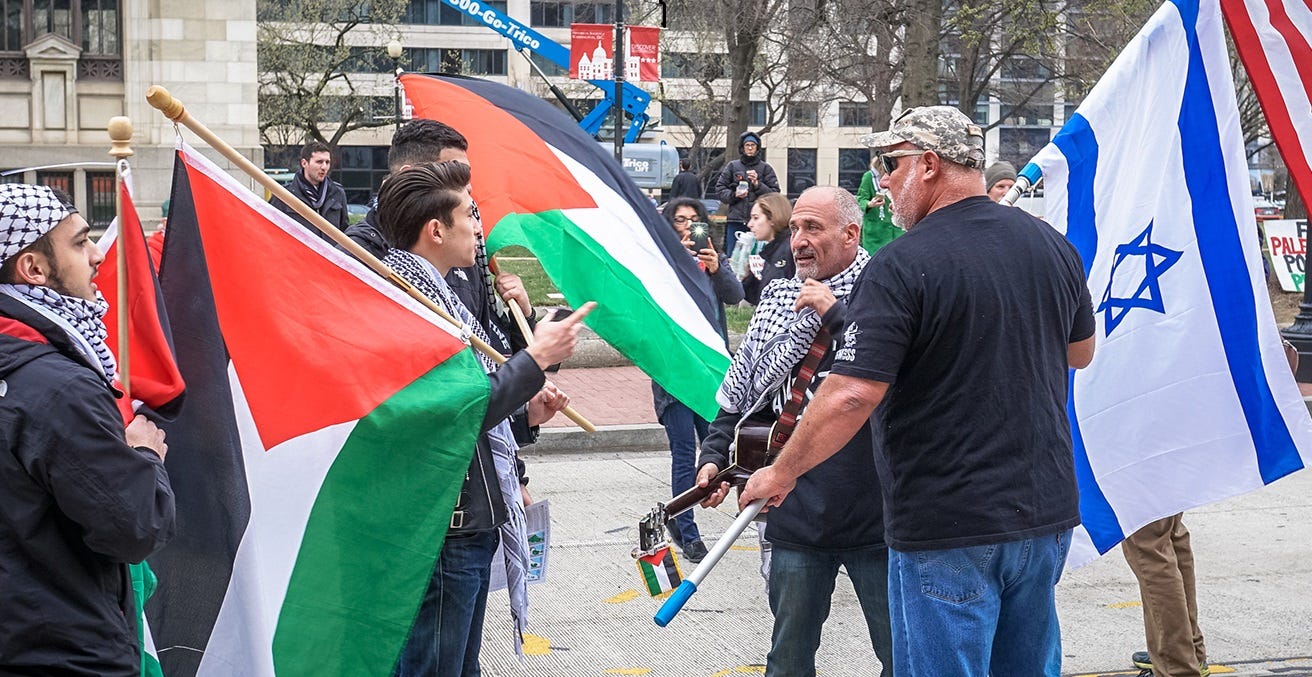In the Shadow of the Israel-Gaza War
What the conflict reveals about America’s domestic politics
Intellectuals, rarely short on opinions, often fall back on a familiar dodge when confronted with a controversy they’d rather avoid: calling the issue “complex.”
The war in Gaza is one such case. To be sure, the tangled history, religion, and culture behind the Israel–Palestine conflict make it genuinely complicated. Partisans on both sides accuse their …



